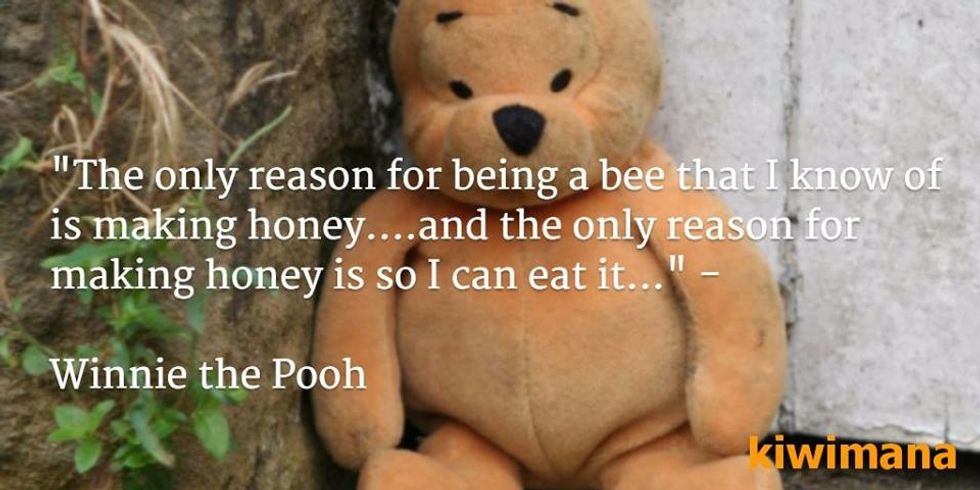Despite being a "Bear of Little Brain," Pooh really gets food. His philosophy behind food shines through the entire Hundred Acre Wood.
Here are 7 ways this "silly ol' bear" may not be quite so silly when it comes to food.
1. A highlight of the day is food.
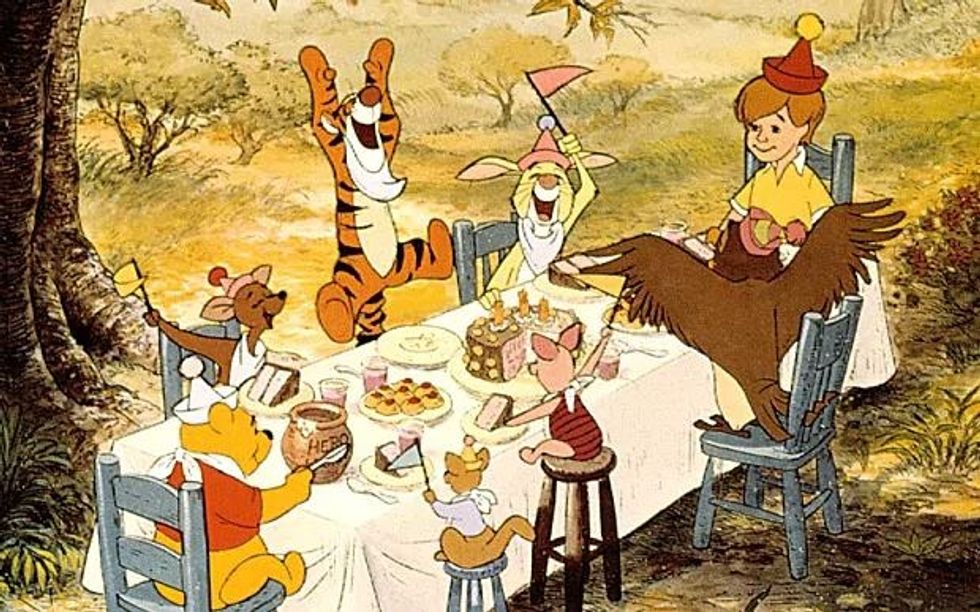
"It is more fun to talk with someone who doesn't use long, difficult words but rather short, easy words like 'What about lunch?"
Pooh doesn't cut any corners with his simple love of food. To him, the highlight of a day is when he eats, what he eats, and with whom he eats it. Food is easily accessible to many of us living in the Western world, and viewing food as a source of joy gives us at the barest minimum several moments of happiness every day.
2. Food brings motivation and joy.
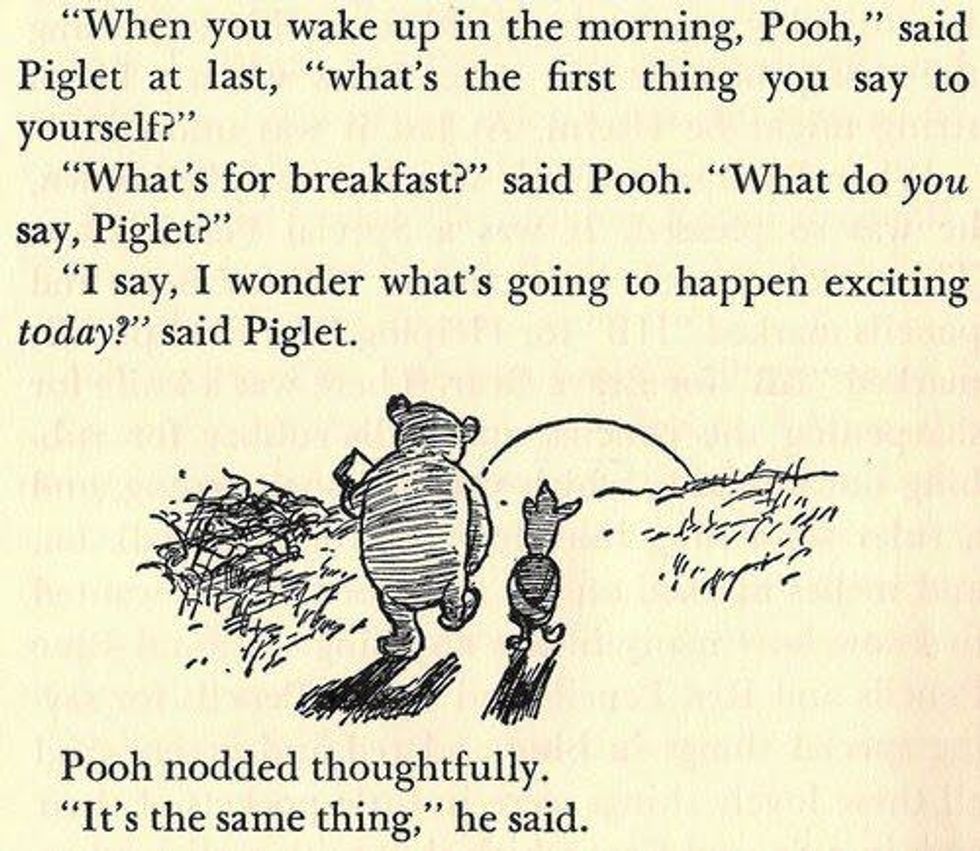
Routines have a comfort and an excitement in their own selves—food can be a consistent bright spot in your day. Having a routine or something you look forward to with your eating habits can make even the most stressful days positive. For Pooh it's honey. For some, it might be a piece of chocolate, or something green, or always eating breakfast. For me, it's a cup of tea.
3. Food eases loneliness.

Friends are important. And food is important. And the two can physiologically be correlated. Studies show that if a person is lonely, holding a hot cup of tea can make them feel less alone.
There will always be times in our life that we are alone, even just physically, even just for a night. Something to smile about can make the difference between being alone, and being lonely—and comfort food is comforting for a reason. When you're feeling a bit eleven o'clock ish, a bit of honey can be just the thing.
4. Food bonds people.
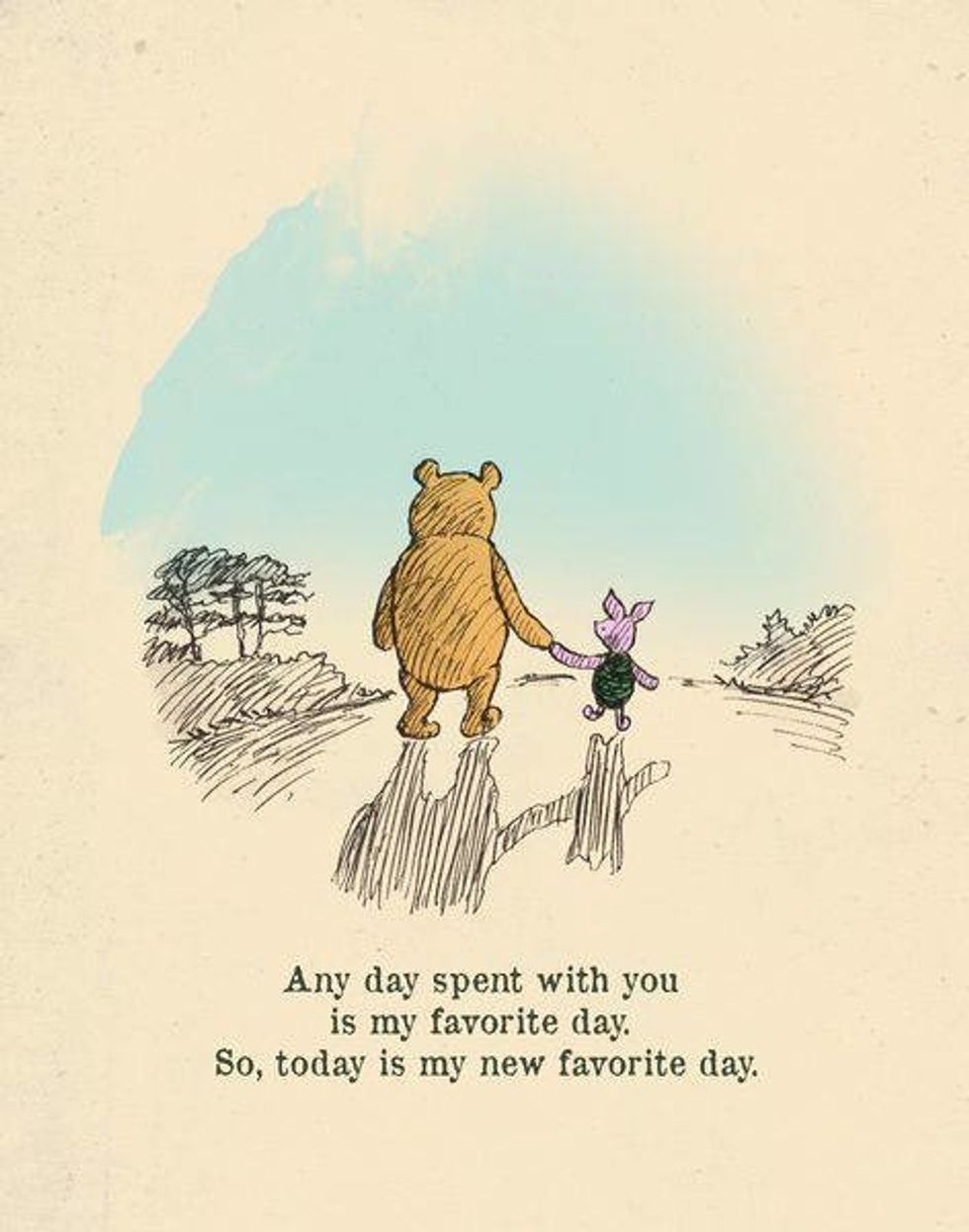
"What I like best in the whole world is Me and Piglet going to see You, and You saying 'What about a little something?' and Me saying, 'Well, I shouldn't mind a little something, should you, Piglet,' and it being a hummy sort of day outside, and birds singing."
Food is embedded in our lives every day. Our eating patterns form in relation to other people and is integrally linked to social groups. Sharing food with other people is one of our oldest forms of connecting with other people and creates an instant, natural bond.
5. Food has its own spiritual power.
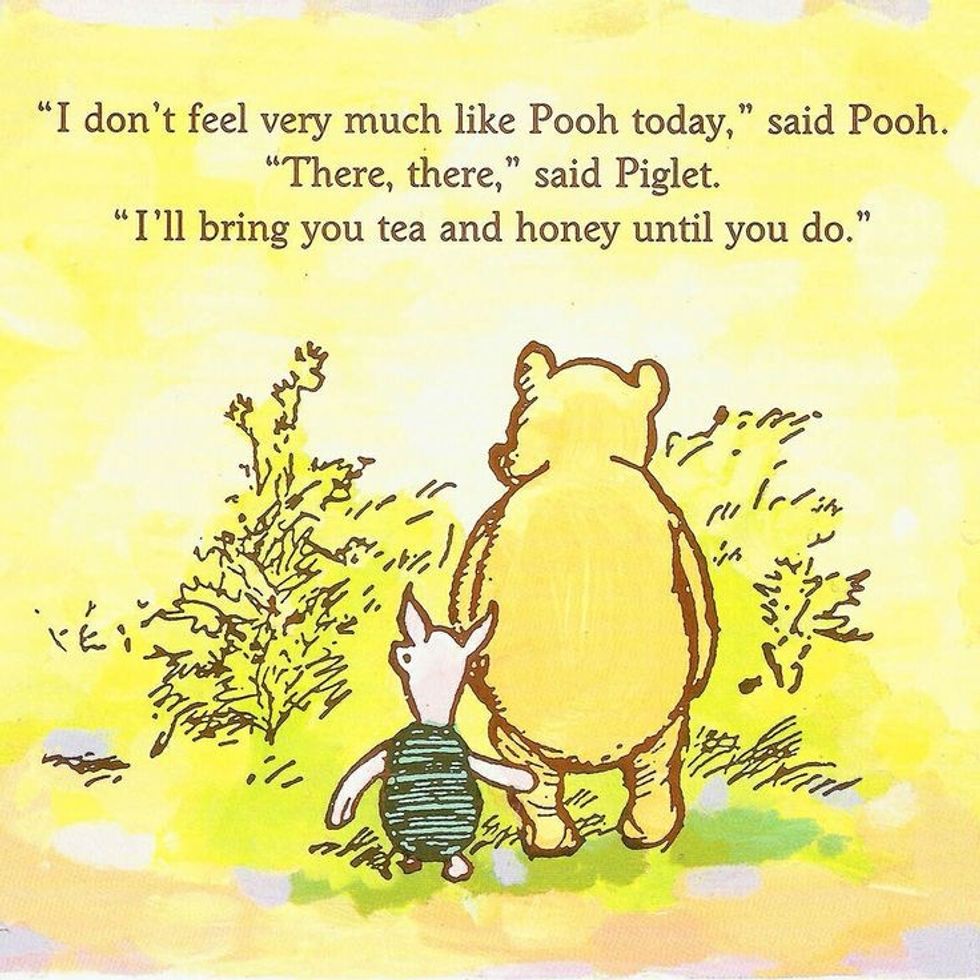
Milne's cognizance of the spiritual nuances behind food is easily seen in this exchange between Piglet and Pooh. This moment, so simple, speaks volumes. Piglet recognizes that food brings comfort to a distressed emotional state, and food offers support to help Pooh find himself again.
Food (or its routines, or its comfort) can help bring us to a balanced, centered, more spiritual state. Also who hasn't been hangry? It's very difficult to be zen when you're hangry.
6. Food feeds the imagination.
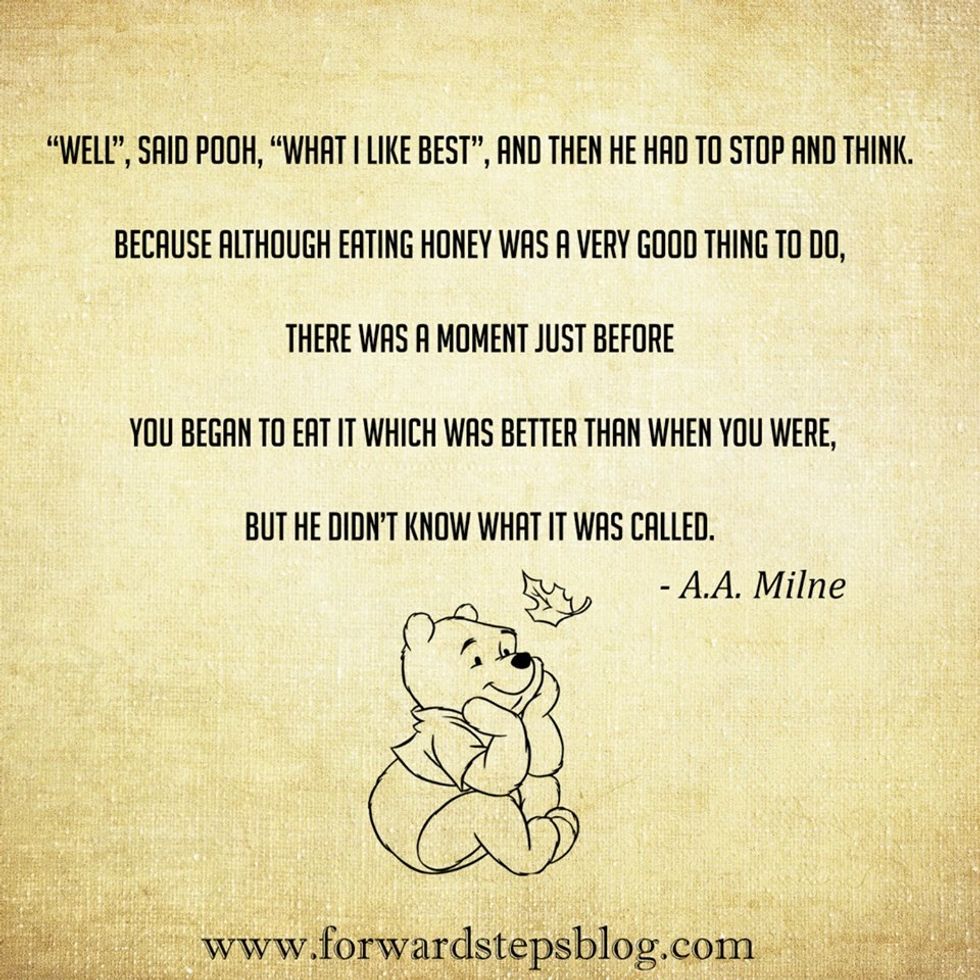
The internationally famous chef Anthony Bourdain viewed food as a powerful storytelling tool. Some native American cultures believe food tells you where you've come from and where you're going. It can empower you to reassert control over your own self and your own life; it reunites you with your spiritual or imaginative self. ("For Bourdain," 2018).
Milne here captures the je ne sais quoi behind food—where food has not only a physiological and emotional influence, it also has an imaginative influence as well.
7. Food exists to nourish and fill us.

We need to eat to survive, and it doesn't take a Bear of Little Brain to tell us how wonderful it is that something we need is also something we find so much delight and joy in. Pooh got how beautiful it is to enjoy a good meal--and thankfully, with a yummy snack or a home-cooked meal or a trip out to eat, you can too.


